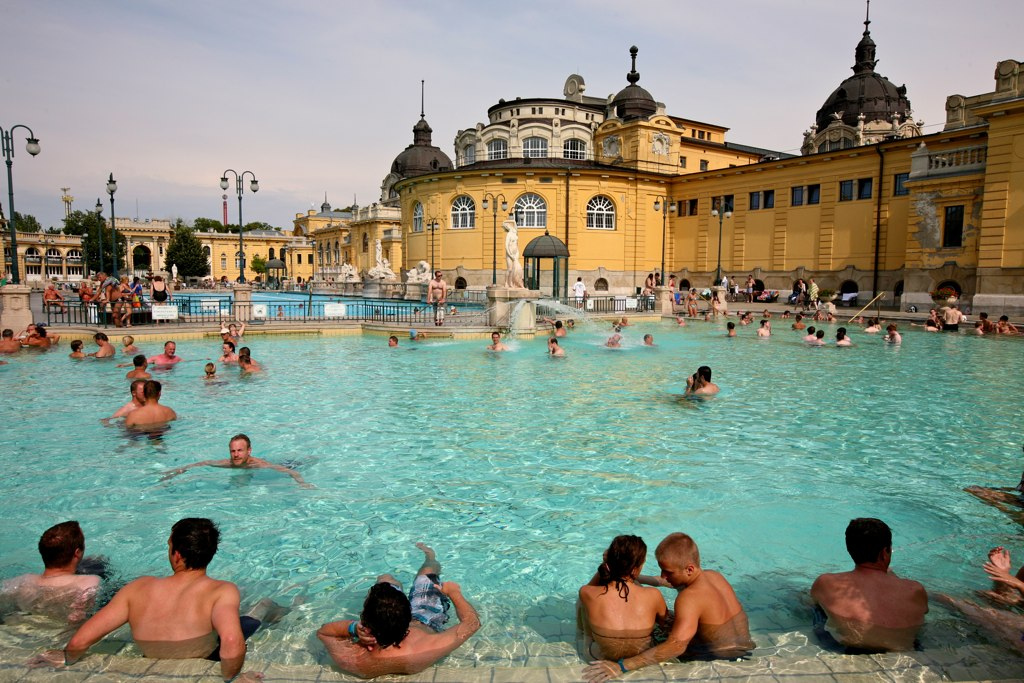Budapest, Hungary plans geothermal district heating project
Local district heating company FÖTÁV and Icelandic Arctic Green Energy cooperate on the development of a geothermal district heating system in Budapest, the capital of Hungary.
In a release shared yesterday, it was announced that the district heating company FÖTÁV in the city of Budapest, the capital of Hungary and Icelandic group Arctic Green Energy have signed a cooperation agreement for the construction of geothermal district heat generating units.
The project may save up to 21,000 tons of CO2 emission a year in Budapest. The first large scale (up to 10-20 MWth) geothermal project is to be put in place in Budapest’s district heating system, i.e. the capital city’s heat supply, through the envisaged cooperation between the two companies.
The city 0f Budapest has seen geothermal energy utilisation for its famous thermal baths, but utilisation actually dates back to Roman times in Szentendre. We also reported on geothermal district heating in Hungary, e.g. with the impact geothermal heating has had in the city of Veresegyhaz near Budapest.

The project snugly fits in with the medium term business strategy just recently adopted by FÖTÁV, laying out the district heating related technical/professional objectives of the single Budapest utility company BKM Budapesti Közmüvek Nonprofit Zrt., a new entity scheduled to start operating in the near future. The Cooperation Agreement just signed is focused on the first substantive phase of the project, comprising an exploration of the potential locations, obtaining the necessary permits, authorisations and/or licences, as well as the overall technical, economic and legal preparations.
Europe aims to achieve a 40% reduction in its greenhouse gas emissions by 2030 relative to the 1990 levels, while the share of energy generated from renewable sources is to be increased to at least 32% of its gross final energy consumption.
The district heating sector is to play a major role in accomplishing the climate protection goals, so the fact that the National Energy Strategy adopted last year includes a Green District Heating Programme is no coincidence. In line with the objective laid down in the programme the share of natural gas in district heat generation will be reduced from the current 70% to 50% in Hungary as a whole by 2030, in which the maximum possible utilisation of geothermal energy may play a crucial role. District heat generation is regulated in Hungary through administrative prices, therefore the pricing to be applied to the geothermal heat generating units to be put in place in Hungary will also be regulated by the Hungarian Energy and Public Utility Regulatory Authority.
FÖTÁV’s priority strategic goal is – in line with the Green District Heating Programme and Budapest’s climate protection goals – to make the district heating market greener, in which the development of geothermal energy capacities, utilising the resources and conditions available in the capital city, plays a key role, besides increasing heat generation from waste. In a longer run the company aims at installing geothermal heat generating capacity of a total of approx. 150-200 MWth. For this reason, FÖTÁV will be ready to embark on similar cooperation arrangements with Arctic even after the agreement just signed, as well as with other partners also with similarly impressive technical and professional references.
Arctic’s operations include the design, construction and operation of power plants and heating plants relying on geothermal energy, as well as the sale of the electricity and heat energy output.
A facility of a capacity of 20 MWth could generate geothermal energy of at least 300.000- 400.000 GJ/year, which would cut CO2 emission by 14.000-21.000 ton/year, and save the emission of other local air pollutants 20.000-30.000 kg/year. A pair of wells of such a capacity could cover the total annual district heat supply for approx. ten thousand average homes in Budapest.
Source: Company release